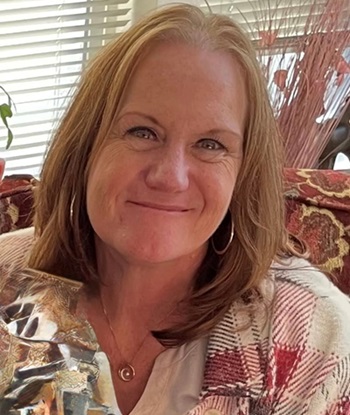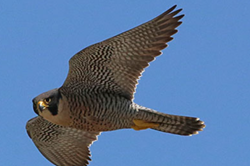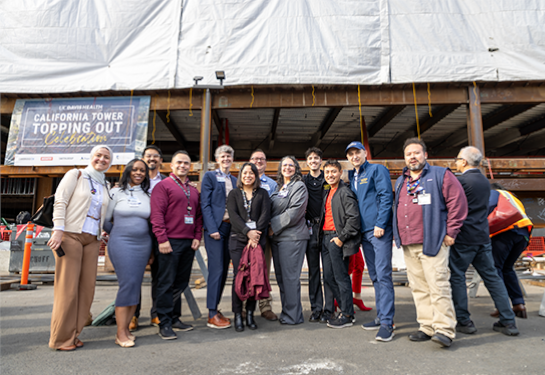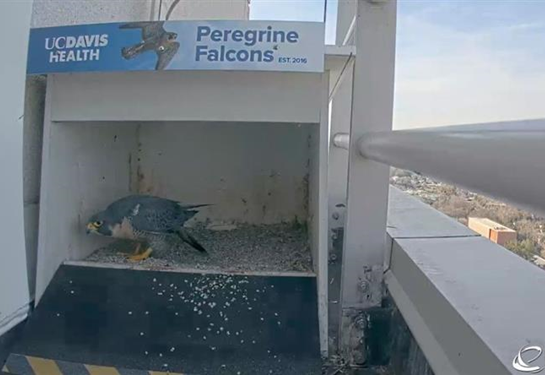‘These falcons are important to me:’ One patient’s story
For Mary Pagan, the peregrine falcons nesting atop the UC Davis Medical Center are more than birds; they symbolize hope and resilience during her most challenging times.

As a faithful EarthCam viewer, Pagan hadn’t seen the UC Davis Health peregrine falcon parents in too long, and she grew concerned. So, she contacted the Public Affairs and Marketing team to check up on them.
Falcon parents generally take longer breaks from guarding the nest as their chicks grow and become more independent. As chicks develop, they require less brooding, and parents spend more time hunting for themselves and their young.
That information provided Pagan a sense of relief.
“I’ve been hospitalized four times, [once] on the 14th floor when my husband and I saw them soar by the window. Then I was back in that room when [the mother] laid the eggs and on the same floor when those babies hatched,” she said.
We’ve heard it before — what’s the big deal about the peregrine falcons?
While some may be indifferent, for others, like Pagan, the falcons offer more than just joy.
“These falcons are important to me,” Pagan said. “They have brought me hope when I was struggling with three back surgeries and an infection, being far from home and family. Honestly, every time I had to be hospitalized, I watched them, and they brought me peace.”

After seeing the falcons fly by her window multiple times, she researched peregrine falcons and read our UC Davis Health story. She’s since tuned into the EarthCam feed to keep tabs on the flying family from her home in Lake County.
“I tell everyone [about the falcons.] I have shared the webcam page with several people and posted the link on Facebook. They are lovely creatures,” Pagan said.
Tracking the falcons each spring isn’t for everyone. But countless others feel exactly how Pagan does: forever invested.



